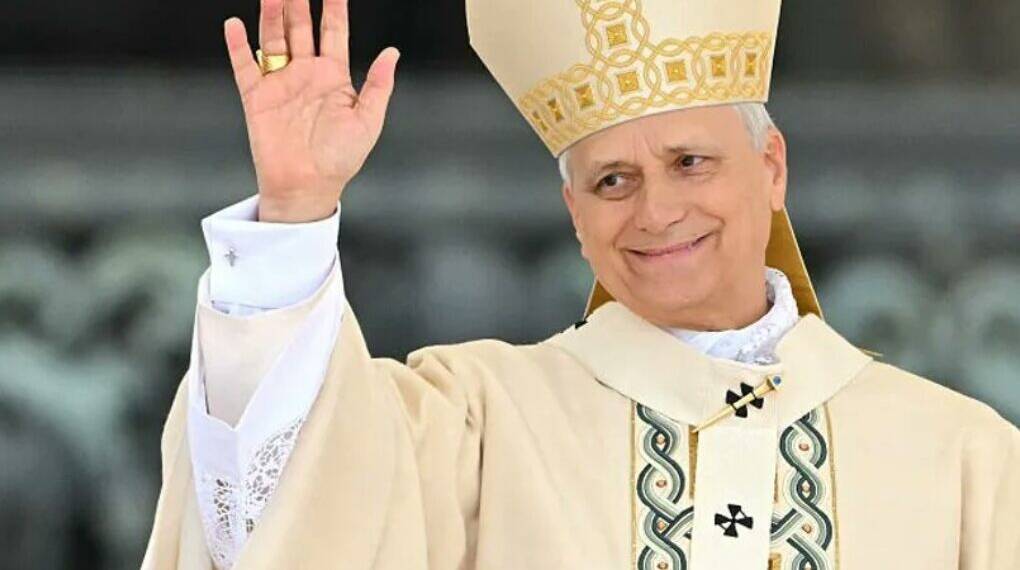In a stirring inaugural mass that drew over 200,000 worshipers and dignitaries from across the globe, Pope Leo XIV officially began his papacy on Sunday with a powerful call for unity and healing within a deeply divided Roman Catholic Church.
As morning sunlight broke over St. Peter’s Basilica, the newly elected pope, formerly Cardinal Giovanni Battista Marini of Milan, emerged in solemn procession clad in simple white vestments, eschewing some of the more ornate trappings of previous papal inaugurations. The 76-year-old pontiff, known for his deep theological grounding and quiet diplomacy, was formally installed before a sea of waving flags and prayerful silence.
A Message of Reconciliation
In his homily, Pope Leo XIV wasted no time addressing the fractures that have come to define the modern Church — ideological divides, declining participation in the West, and internal tensions between traditionalist and progressive factions.
“The Church is not a museum of perfection but a living body, wounded yet enduring,” he said in Italian. “We must no longer speak at one another but listen to each other—as brothers and sisters united not in opinion, but in Christ.”
The message resonated with many in attendance, particularly amid recent controversies over clerical celibacy, LGBTQ inclusion, and the role of women in the Church — topics that have polarized clergy and laity alike.
Leo XIV extended an olive branch to Eastern Orthodox Christians, signaling a renewed commitment to ecumenical dialogue. “Let our divisions be not walls, but thresholds,” he declared, prompting sustained applause from the crowd.
Global Leaders in Attendance
The inaugural mass was one of the most widely attended in recent Vatican history. Notable figures in the congregation included U.S. Vice President J.D. Vance, Ukrainian President Volodymyr Zelenskyy, French President Emmanuel Macron, and United Nations Secretary-General António Guterres etc.
Vance, representing the President Trump administration, was seen speaking briefly with Vatican Secretary of State Cardinal Parolin before the ceremony. The White House later released a statement praising the new pope’s message of “moral clarity and spiritual leadership in troubled times.”
President Zelenskyy’s presence, while unexpected, was symbolic. Sources close to the Vatican say Pope Leo XIV plans to prioritize peace diplomacy, including efforts to mediate in the ongoing Russo-Ukrainian conflict. Zelenskyy’s appearance — reportedly at the direct invitation of the Holy See — marks a potential thaw in relations between Kyiv and a Vatican previously perceived as overly cautious in its criticism of Moscow.
Ceremony Highlights
Following the homily, the pope received the Fisherman’s Ring and pallium, traditional symbols of papal authority, from the College of Cardinals. The choir of the Sistine Chapel performed a haunting rendition of Tu es Petrus, echoing off the colonnades of the square as incense rose into the clear spring sky.
Security was visibly tight, with thousands of Carabinieri and Vatican police patrolling the area. Despite the crowd’s size, the event was peaceful and deeply reverent. Pilgrims from all continents knelt during the Eucharist, many weeping openly during the final blessing.
A New Papal Chapter
While some skeptics within the Church hierarchy had quietly questioned whether Leo XIV would be a transitional figure given his age, Sunday’s mass suggested otherwise. His tone was both humble and firm, his words carefully crafted to resonate across generations and geographies.
In an unscripted moment at the end of the mass, Pope Leo XIV turned toward the crowd and spoke plainly: “Pray for me. I begin this journey not as a sovereign, but as your servant.”
Also read: Pope Leo XIV: First American Pope
As bells rang across Rome and beyond, many sensed the beginning of a new, possibly pivotal, chapter in Catholic history — one defined less by doctrine and more by bridge-building.
Whether Leo XIV can heal the rifts he so eloquently addressed remains to be seen. But for one morning in St. Peter’s Square, at least, the Church felt whole.








